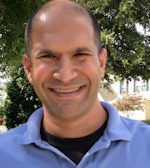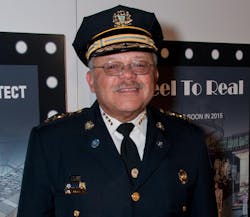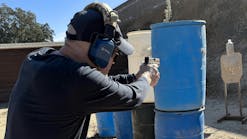The year 2012 held many challenges that law enforcement agencies had to deal with and one official believes that moving forward, both officers and their supervisors will need to adapt to changing times.
Philadelphia Police Commissioner Charles Ramsey, who is president of both the Major Cities Chiefs Association and the Police Executive Research Forum, told Officer.com recently that the law enforcement community will have to get used to the new normal.
"I think (this year) has been challenging," he said. "A lot of it is due to departments around the country dealing with budget cuts due to the recession."
He said that while his department did not suffer any layoffs -- though many other departments have -- a hiring freeze was imposed several years ago and was just lifted this year.
"It puts a lot of pressure on the officers out there because their workload is the same or increasing," he said. "It has caused some problems."
Adapting to Changing Times
Ramsey said that while he believes things will gradually get better, changes will have to be made for agencies to function properly in the new fiscal world they operate in.
"I don't think that departments will see the manpower levels where they were before the recession," he said. "I think we really have to rethink the structure of the organization."
Ramsey said that this includes changing tactics when it comes to how and where officers are deployed so that units are where they are needed the most.
"I think one of the things departments will have to do is reexamine how they do business," he said. "You see more departments going towards regionalization."
He pointed out that by regionalizing specialized units such as SWAT and bomb squads, money can be focused on other areas.
"It's gotten to the point where you can't afford to have your own specialized units and sustain them," he said.
While that will be the case primarily for smaller and mid-sized departments, he said that larger departments could benefit as well.
"I think that's a good thing. We can definitely use help here in Philadelphia at times."
Obama's Second Term
With newly re-elected President Obama gearing up for his second term, Ramsey said police leaders are optimistic, but realize there are some challenges ahead.
"Funding has declined," he said. "It's not just local budgets, but on the federal level as well."
He said that money from the COPS Office -- which he believes was a big part of the reason for the big decline in crime in the late 90s and the early 2000s -- has been drying up.
While funds from DHS were readily available following the 9/11 terrorist attacks, he said there is less available now and that agencies are unable to maintain staffing and training levels reached after being awarded the money.
Looking toward 2013, Ramsey said that while the fiscal challenges will remain, there are plenty of other things that will affect the law enforcement community.
One issue is the increased activity by the U.S. Justice Department to investigate the use of force by departments.
"That puts more pressure on police departments as far as training that is necessary and steps to take once a the department is part of an investigation," he said.
He said that another issue that may arise is that the forensic sciences community has been pushing for federal standardization.
"It's good in theory, but we don't want to see it become micromanaged," he said. "We don't want a situation where standards are imposed on us that just aren't realistic."
With a new FBI director set to be appointed, as current Director Robert Mueller retires, he said law enforcement leaders hope that more focus will be placed on local policing.
"Director Mueller was outstanding and hope we get a director that works as well as he did with local departments, but we want more focus to be put on crime rather than just terror," he said.
He said that law enforcement organizations are currently working on a uniform crime reporting system and also have called upon President Obama to create a commission to look at crime in the U.S.
The last time such a commission was formed was back in 1965 when President Lyndon Johnson created the President's Commission on Law Enforcement and the Administration of Justice.
Mass Shootings
Mass-causality shootings dominated the headlines in 2012.
A former nursing student allegedly gunned down seven people at Oikos University in Oakland, Calif. on April 2; a gunman entered a theater in Aurora, Colo. on July 20 and opened fire, killing 12 people and injuring 58 others; a white supremacist allegedly killed six people inside a Sikh temple in Oak Creek, Wis. on Aug. 5.
The unthinkable happened on Dec. 14 when a gunman entered Sandy Hook Elementary School in Newtown, Conn. and killed 26 people including 20 small children.
These are just some of the tragedies officers were called to in 2012, and Ramsey said that in the coming year, a lot of focus will be put on training.
"I think we really started (looking at it) after Columbine and there were a lot of lessons learned," he said. "You can't just wait around for the SWAT team. You have to be trained and prepared to go in."
He stressed that departments have to make sure that every officer who leaves the academy has undergone active-shooter training.
"We have to be vigilant, we have to be prepared," he said. "It's going to be that beat cop who is responding, not the specialized unit."
Following the Newtown tragedy, many organizations -- and the President himself -- have called for renewed discussions on gun control.
Ramsey was among the law enforcement officials who attended a meeting with Vice President Joe Biden at the Eisenhower Executive Office Building in the White House complex on Dec. 20 to discuss gun laws.
"I think gun laws are something police leaders as well as politicians need to be able to look at," he said. "It's time to have a responsible conversation about them. We have to look at this realistically and figure out if the laws on the books are adequate and if not, what can be done."
While preliminary data shows that firearms-related fatalities of law enforcement officers declined by 32 percent in 2012 compared to the previous year, there were still several high-profile incidents in which officers were ambushed.
Ramsey urged officers to always be prepared for the worst.
"It stands to reason you'll see an increase in use of guns against police because you are seeing an increase in gun violence overall," he said.
He also spoke of the importance of bullet proof vests and the need for agencies to require officers to wear them.
"Believe it or not, we still have some agencies that don't have mandatory policies for ballistic vests and you have some officers and union officials that argue against it," he said.
Going forward into 2013, Ramsey said that officers need to keep in mind that their main job is to serve the public, and not to lose sight of that.
"I think that the biggest message we need to convey to rank and file officers is that this is a very challenging time, but the one thing that hasn't changed is that this is a service profession," he said. "Most of the people we deal with are not criminals and we have to be ready and able to help them."

Paul Peluso | Editor
Paul Peluso is the Managing Editor of OFFICER Magazine and has been with the Officer Media Group since 2006. He began as an Associate Editor, writing and editing content for Officer.com. Previously, Paul worked as a reporter for several newspapers in the suburbs of Baltimore, MD.



